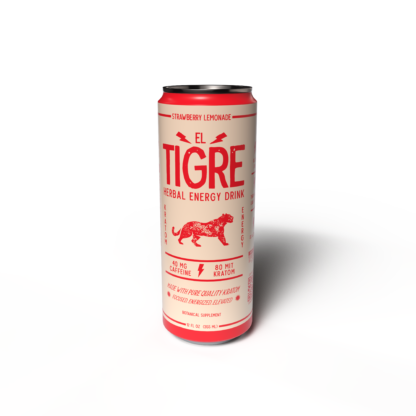Kratom Energy Drinks
Kratom, a tropical tree native to Southeast Asia, has gained popularity as an alternative energy source due to its stimulant and pain-relieving properties. Its active compounds, mitragynine and 7-hydroxymitragynine, are believed to produce effects similar to caffeine and opioids. This surge in demand has led to the rise of kratom-infused energy drinks, marketed as natural alternatives to traditional caffeinated beverages. However, the legal status of kratom and its products varies greatly across the United States, with some states banning it entirely while others allow its sale and consumption.
Definition and Composition
Kratom energy drinks are beverages that incorporate kratom extract as an ingredient. These drinks aim to provide a natural energy boost similar to traditional caffeinated beverages but often claim additional benefits such as pain relief and mood elevation. The active compounds in kratom, mitragynine and 7-hydroxymitragynine, are responsible for these effects.
The composition of kratom energy drinks can vary widely depending on the manufacturer. Common ingredients besides kratom extract include water, sugars (like glucose or sucrose), artificial sweeteners, flavorings, and other additives such as guarana or taurine.
Health Effects and Potential Benefits
The health effects of kratom energy drinks are complex and not fully understood due to limited research. Kratom’s active compounds can stimulate the central nervous system, producing effects like increased energy, alertness, and focus. However, excessive consumption can lead to adverse effects such as anxiety, insomnia, nausea, and rapid heartbeat.
Some individuals report potential benefits from kratom, including pain relief, reduced fatigue, and mood elevation. However, these claims lack robust scientific evidence and require further investigation.
It is important to note that kratom can interact with certain medications, particularly opioids and antidepressants. Individuals with pre-existing health conditions or those taking medication should consult a healthcare professional before consuming kratom energy drinks.

Risks and Concerns

Kratom energy drinks present potential risks and concerns due to the nature of their key ingredient – kratom. While some users report benefits like increased energy and pain relief, these claims are not fully substantiated by scientific research.
A major concern is the unpredictable effects of kratom, which can vary depending on dosage, individual sensitivity, and the preparation of the extract. Potential adverse effects include anxiety, insomnia, nausea, rapid heartbeat, and addiction.
The legal status of kratom and its products is complex and varies across states in the United States, making it difficult to determine their safety and legality.
Furthermore, the lack of regulation in the production of kratom energy drinks raises concerns about product quality and potential contamination.
Legal Status by State
The legal landscape surrounding kratom energy drinks is a complex and evolving one. Across the United States, individual states have enacted different laws governing the sale, possession, and use of kratom products, creating a patchwork of regulations that can be difficult to navigate.
States Where Kratom Energy Drinks Are Legal
Some states have outright banned kratom, while others have implemented restrictions on its sale or consumption. A few states have taken a more lenient approach, allowing the sale and possession of kratom products.
For consumers seeking information about the legality of kratom energy drinks in their specific state, consulting resources provided by state government agencies or legal experts is recommended.
States Where Kratom Energy Drinks Are Restricted or Banned
Alabama has banned kratom. Alaska allows kratom sales but restricts its use for certain populations.
Arizona permits kratom sales with some restrictions on retail sellers. Arkansas has banned kratom.
California regulates kratom sales and distribution. Colorado allows kratom sales and possession. Connecticut prohibits the sale of kratom products.
Delaware allows kratom sales with no specific restrictions. Florida has restricted kratom sales but does allow its possession. Georgia permits kratom sales.
Hawaii bans kratom. Idaho allows kratom sales without restrictions. Illinois permits kratom sales, though some municipalities may have local ordinances.
Indiana permits kratom sales with age restrictions. Iowa prohibits kratom sales but allows possession. Kansas restricts the sale of kratom products.
Kentucky permits kratom sales and possession. Louisiana regulates kratom sales and distribution.
Maine allows kratom sales with age restrictions. Maryland permits kratom sales. Massachusetts has banned kratom.
Michigan prohibits kratom sales but allows possession for personal use. Minnesota allows kratom sales with age restrictions. Mississippi restricts kratom sales to adults 21 and older.
Missouri regulates kratom sales and distribution. Montana permits kratom sales without restrictions. Nebraska restricts kratom sales.
Nevada permits kratom sales, but local municipalities may have ordinances regarding its sale or use. New Hampshire allows kratom sales without restrictions.
New Jersey regulates kratom sales and distribution. New Mexico permits kratom sales with age restrictions. New York prohibits kratom sales and possession.
North Carolina restricts the sale of kratom products.
North Dakota permits kratom sales without restrictions.

Ohio allows kratom sales but has restricted its use in certain contexts.
Oklahoma permits kratom sales with age restrictions. Oregon regulates kratom sales and distribution.
Pennsylvania prohibits the sale of kratom products.
Rhode Island prohibits kratom sales.
South Carolina permits kratom sales, but local municipalities may have ordinances regarding its sale or use.
South Dakota allows kratom sales with age restrictions. Tennessee permits kratom sales but has restricted its use in certain contexts.
Texas permits kratom sales with age restrictions. Utah bans kratom. Vermont allows kratom sales without restrictions.
Virginia permits kratom sales. Washington restricts the sale of kratom products.
West Virginia prohibits kratom sales. Wisconsin permits kratom sales but has restricted its use in certain contexts. Wyoming permits kratom sales without restrictions.
Partial Bans or Restrictions
Kratom energy drinks are beverages that incorporate kratom extract as an ingredient. These drinks aim to provide a natural energy boost similar to traditional caffeinated beverages but often claim additional benefits such as pain relief and mood elevation. The active compounds in kratom, mitragynine and 7-hydroxymitragynine, are responsible for these effects.
The legal status of kratom and its products varies greatly across the United States:
- Alabama – Banned
- Alaska – Allowed with restrictions on use
- Arizona – Permitted with restrictions on retail sellers.
- Arkansas – Banned
- California – Regulated sales and distribution
- Colorado – Allowed
- Connecticut – Sale prohibited
- Delaware – Allowed without restrictions
- Florida – Restricted sales but possession allowed
- Georgia – Permitted
- Hawaii – Banned
- Idaho – Allowed without restrictions
- Illinois – Allowed, some municipalities may have local ordinances
- Indiana – Allowed with age restrictions
- Iowa – Sale prohibited but possession allowed
- Kansas – Restricted sale
- Kentucky – Permitted
- Louisiana – Regulated sales and distribution
- Maine – Allowed with age restrictions
- Maryland – Permitted
- Massachusetts – Banned
- Michigan – Sale prohibited but personal possession allowed
- Minnesota – Allowed with age restrictions
- Mississippi – Restricted to adults 21 and older
- Missouri – Regulated sales and distribution
- Montana – Allowed without restrictions
- Nebraska – Restricted sale
- Nevada – Permitted, local ordinances may apply
- New Hampshire – Allowed without restrictions
- New Jersey – Regulated sales and distribution
- New Mexico – Allowed with age restrictions
- New York – Sale and possession prohibited
- North Carolina – Restricted sale
- North Dakota – Allowed without restrictions
- Ohio – Allowed but restricted in certain contexts
- Oklahoma – Allowed with age restrictions
- Oregon – Regulated sales and distribution
- Pennsylvania – Sale prohibited
- Rhode Island – Sale prohibited
- South Carolina – Permitted, local ordinances may apply
- South Dakota – Allowed with age restrictions
- Tennessee – Permitted but restricted in certain contexts
- Texas – Allowed with age restrictions
- Utah – Banned
- Vermont – Allowed without restrictions
- Virginia – Permitted
- Washington – Restricted sale
- West Virginia – Prohibited
- Wisconsin – Allowed but restricted in certain contexts
- Wyoming – Allowed without restrictions
Emerging Trends in State Legislation
The legal status of kratom energy drinks is complex and varies significantly from state to state. This makes it crucial for consumers to understand the regulations in their specific location before purchasing or consuming these products. Several trends are emerging in state legislation regarding kratom.
- Bans: Several states have opted for a complete ban on kratom, citing concerns about potential adverse health effects and addiction risks.
- Restrictions: Many other states have implemented various restrictions on kratom sales, including age limits, limitations on where it can be sold (e.g., excluding pharmacies), and requirements for sellers to register or obtain licenses.
- Regulation: Some states have chosen a regulatory approach, establishing guidelines for the production, labeling, and sale of kratom products to ensure quality control and consumer safety.
- Legalization with Monitoring: A few states have legalized kratom outright while implementing mechanisms for ongoing monitoring and research to assess its long-term effects and potential risks.
These trends reflect the ongoing debate surrounding kratom’s safety and legality. As more research becomes available and public understanding evolves, it is likely that state legislation will continue to adapt and evolve in response to the complexities of this emerging issue.
Just Kratom’s top energy beverages
Lace and Scotch
My Fabulous Collection
- Lip Flip Treatment In Kingston Upon Thames KT1 - June 2, 2025
- Skin Injectables Near Holmbury St Mary, Surrey - June 1, 2025
- What It Means To Be Asexual And How It Affects Romantic Connections - June 1, 2025
